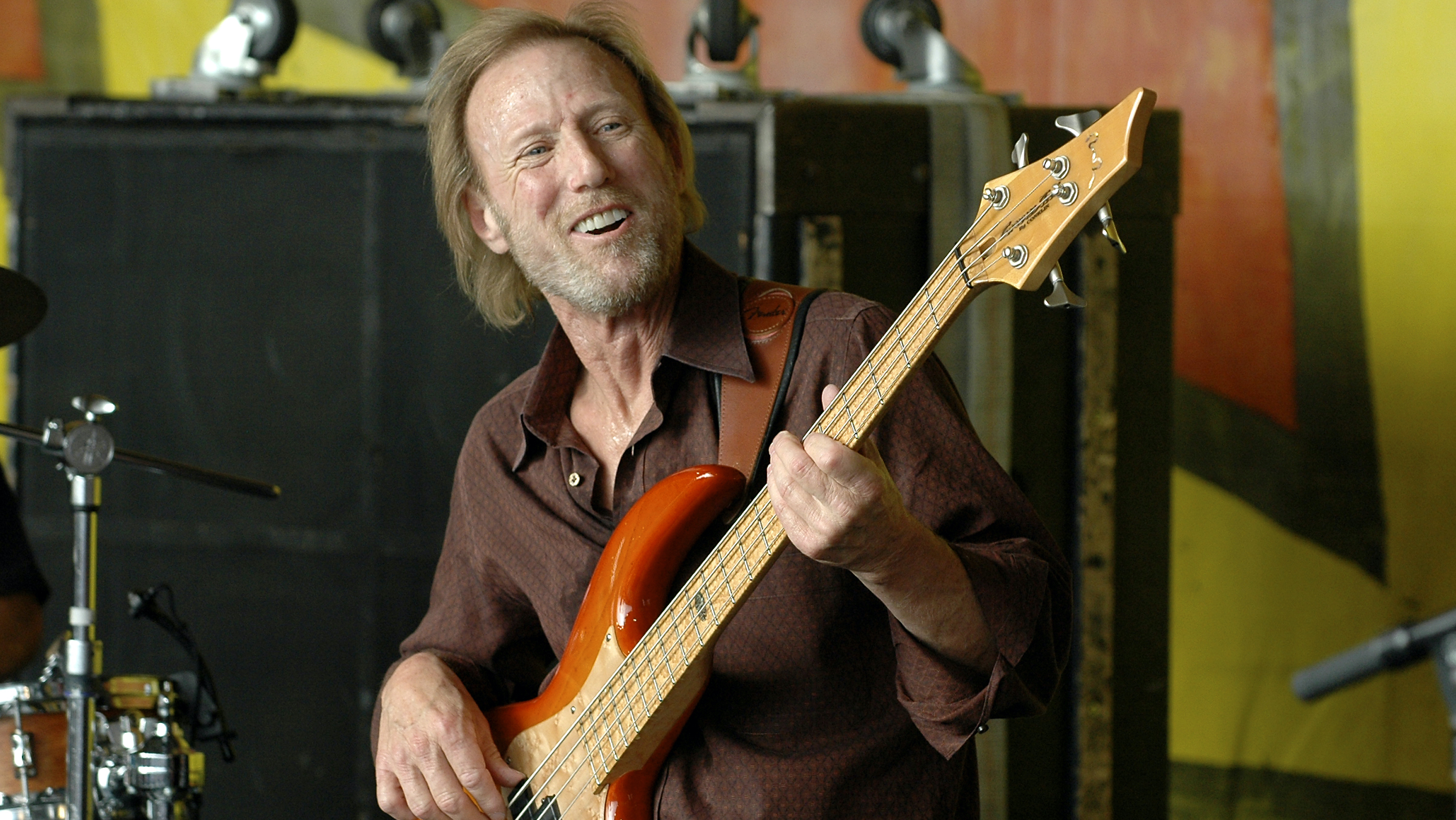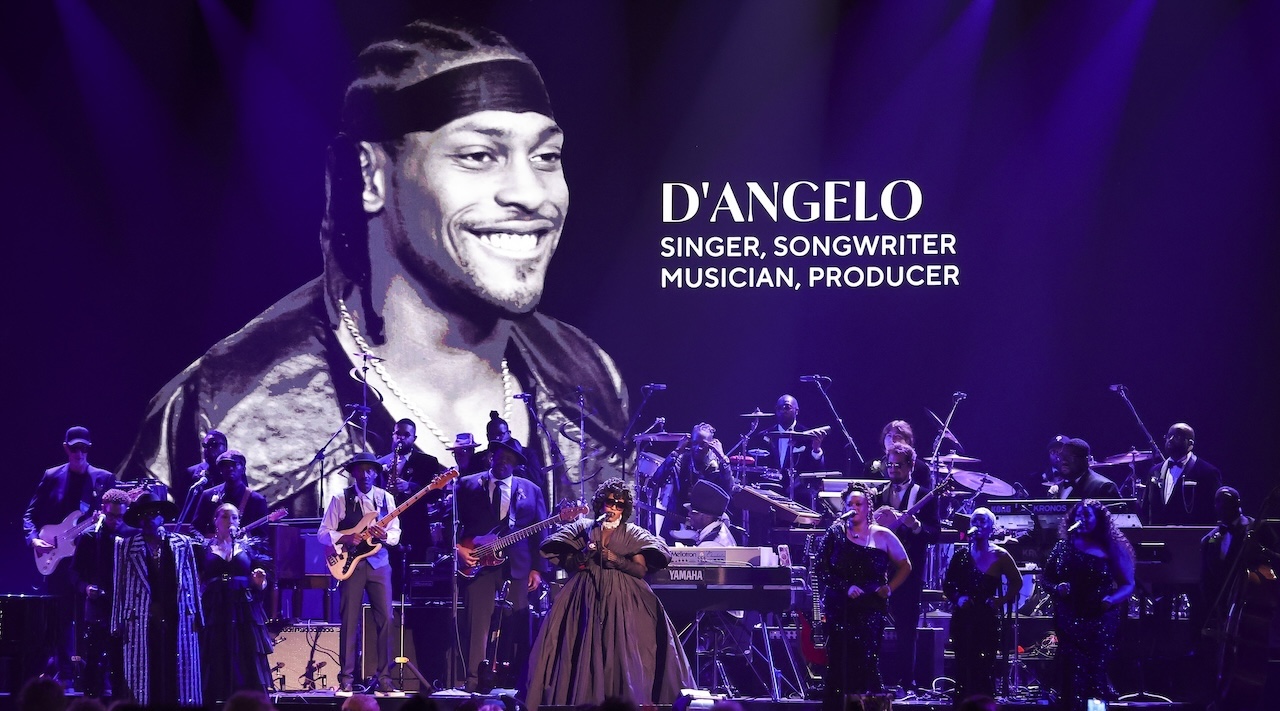Legendary Tower of Power bassist Rocco Prestia dies aged 69
The fingerstyle funk master was one of the most influential bassists of the past 50 years

All the latest guitar news, interviews, lessons, reviews, deals and more, direct to your inbox!
You are now subscribed
Your newsletter sign-up was successful
Tower of Power bassist and fingerstyle funk master Rocco Prestia has died at the age of 69.
Prestia had been battling various illnesses since 2001 – in 2014, he underwent a “lifesaving” kidney transplant.
Tower of Power bandleader Emilio Castillo confirmed the news on the band’s official Facebook page, writing: “Our dear "Rocco" passed away last night, peacefully with his family by his side at a hospice in Las Vegas.
“As a bass player he was totally unique and as a person he was one of a kind. He fought a long fight over the last 20 years and now he's with the Lord and heaven is his home.
“To say that Francis Rocco Prestia was a huge part of the Tower of Power sound is a gross understatement. When people listened to Tower of Power it was always Rocco that they walked away talking about and he had a major impact on the music world.”
Rocco Prestia was born in Sonora, California on March 7, 1951. He first picked up the electric guitar at age 10, after his mother bought him a Sears Silvertone guitar and amp for Christmas.
At 14, he auditioned to join the band of a classmate, Emilio Castillo. Castillo’s father hired local jazz guitarist Terry Saunders to teach the band members their instruments, and Saunders switched Prestia to a white P-Bass copy.
All the latest guitar news, interviews, lessons, reviews, deals and more, direct to your inbox!
“All I knew about the bass was that it was bigger than me!,” Prestia told Bass Player. At the same time, he credited players like James Jamerson, Larry Graham, Paul Jackson, Duck Dunn, Chuck Rainey, Jerry Jemmott, David Hood and Willie Weeks as influences on his burgeoning style.
In time, Castillo’s band added more horns and transitioned from covering Stax/Volt and Motown at dances to writing and performing originals at clubs as Tower of Power.
After catching a Tower of Power performance at the Fillmore in San Francisco, legendary music promoter Billy Graham signed the band to his management company. Tower of Power released their debut album, East Bay Grease, in 1970 on Graham’s San Francisco Records.
Prestia credited TOP drummer Dave Garibaldi with helping to shape his style, saying, “When Dave came onboard, three months before we cut [East Bay Grease], he had all kinds of ideas he wanted to try, and we clicked right away. Looking back at it now, we complemented each other because he was a busy player, and I had a simpler, more laid-back approach.
“We met in the middle, and it was magical. I think I was moving toward busier lines naturally, but he opened me up rhythmically. I started adding notes and accents, and playing with a sense of moving the music along.
“In addition, I realized that playing more percussively, with staccato notes, seemed to lock better with Dave’s drums, so dead notes and ghosted notes became a big part of my style."
Tower of Power would move to Warner Bros. Records for their sophomore album, 1972’s Bump City, and scored a hit with the single You're Still a Young Man.
Throughout the decade, they would establish themselves as one of America’s premier funk, soul and R&B units, with a series of successful albums, including 1973’s Tower of Power and 1974’s Back to Oakland, as well as hit singles like So Very Hard to Go, Don’t Change Horses (in the Middle of a Stream) and What is Hip?
“Hip was Dave’s concept of having one note droning throughout the song, inspired by the Ben E. King tune Way Down Low,” Prestia said. “Everyone was skeptical: ‘Really?’ Little did we know. I also thought the bass was too hot in the mix – wrong again!”
The band’s horn section also worked with artists ranging from Otis Redding, Larry Graham and Bonnie Raitt to Aerosmith, Santana and the Grateful Dead.
Prestia was let go from Tower of Power in 1977, and spent several years playing blues gigs in the Bay Area and jamming with greats like Albert King and Albert Collins.
He rejoined the band in the mid ‘80s and stayed with them for the next several decades, touring and recording a series of albums. Beginning in the ‘90s he also released his own solo albums and instructional videos.
I’ve been blessed to have spent my career in a band that plays original music, giving me the opportunity to create my own parts. Out of that came a style that has apparently influenced other bass players
As for how Prestia described his influential technique, he told Bass Player: “I generally play by jumping to different positions with my left hand, instead of spreading my fingers to play across a wide span. My hand lies flat over the fingerboard, in a three-fret space, and I mainly use my index and middle fingers to fret the notes, and my 3rd finger and pinkie to dampen the strings – although I occasionally fret with those fingers, as well.
“With my right hand, I use alternating index and middle fingers to pluck the strings, about midway between the neck and the bridge, anchoring my thumb on the pickup or the E string. I combine dead notes and ghosted notes, but not in a planned way; they come out naturally.
“Dead notes involve fretting the note and then muting it with my third finger and pinkie, as well as how I attack and stop the note in my plucking hand. For ghosted notes, I place my finger over the note but I don’t press down on the fret, so that finger is muting the string.”
In 2018 Prestia was let go by Tower of Power again, with the band pointing to his ongoing health issues as the reason.
“It’s sad and disappointing,” Prestia said. “I feel like I’m being put out to pasture. But they made their decision, and it is what it is. It’s time for me to move on.”
Looking back over his career, he added, “I’m proud of the body of work with TOP; I think there’s a lot of great music. Audiences seem to enjoy it and how it makes them feel, which is all the more reaffirming.
“I’ve been blessed to have spent my career in a band that plays original music, giving me the opportunity to create my own parts. Out of that came a style that has apparently influenced other bass players.”
Throughout his career, Prestia was humbled by his legacy as a bass innovator.
“I’m still taken aback by my notoriety in an era when you can go into a corner bar and find a great bassist," Prestia said.
"I don’t read, I don’t count, my ear is limited to hearing things in 3rds and 5ths and not much more, and I’m not a soloist – not that I aspire to be.
“I just play the way I play, by instinct. But people seem to like it. That’s remarkable to me.”
Rich is the co-author of the best-selling Nöthin' But a Good Time: The Uncensored History of the '80s Hard Rock Explosion. He is also a recording and performing musician, and a former editor of Guitar World magazine and executive editor of Guitar Aficionado magazine. He has authored several additional books, among them Kurt Cobain: Montage of Heck, the companion to the documentary of the same name.


